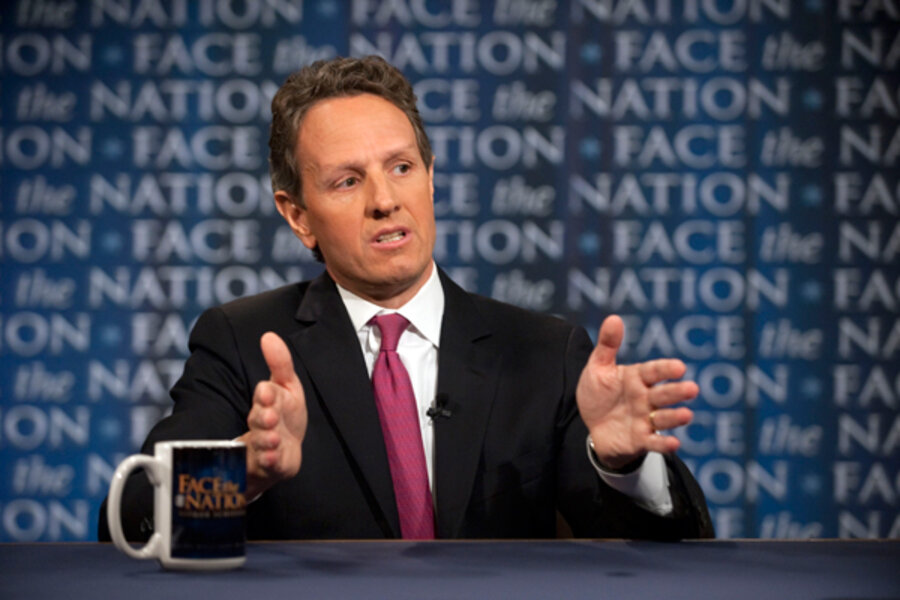This option has not quite been scratched from the list, though it has been disavowed by pertinent parties. It is based on the claim that the 14th Amendment allows the president to do an end-run around Congress to raise the debt ceiling on his own.
This scenario came to the fore in May, when Treasury Secretary Timothy Geithner noted the 14th Amendment’s command that “the validity of the public debt of the United States … shall not be questioned.” This set off speculation that Obama would use it to justify an assertion of executive power to borrow money without regard to a congressional debt limit.
Responding to critics, Secretary Geithner last week denied reports that the Obama administration was thinking along those lines. Like previous Treasury secretaries, Geithner views the debt limit “as a binding legal constraint,” wrote George Madison, Treasury’s general counsel, in a July 8 letter posted on the Treasury Department’s website.
But that has not silenced speculation that there may yet be a way to get around the debt limit through assertion of executive powers.
“It’s credible, but it’s never really been tested,” says Stan Collender, a longtime federal budget analyst and now a partner at Qorvis Communications in Washington. “I’ve worked the budget for 35 years, and the 14th Amendment has never come up once, even though it mentions the word debt.”
Sticking points: Responding to requests from Congress for clarification on this issue, the Congressional Research Service found “no basis in the legislative history, or arguably in the structure of the Constitution itself, that can support an executive power to borrow funds."
“I’m not willing to give up the power of the purse,” says Rep. Dan Lungren (R) of California. “I don’t give anything away to a president.”





